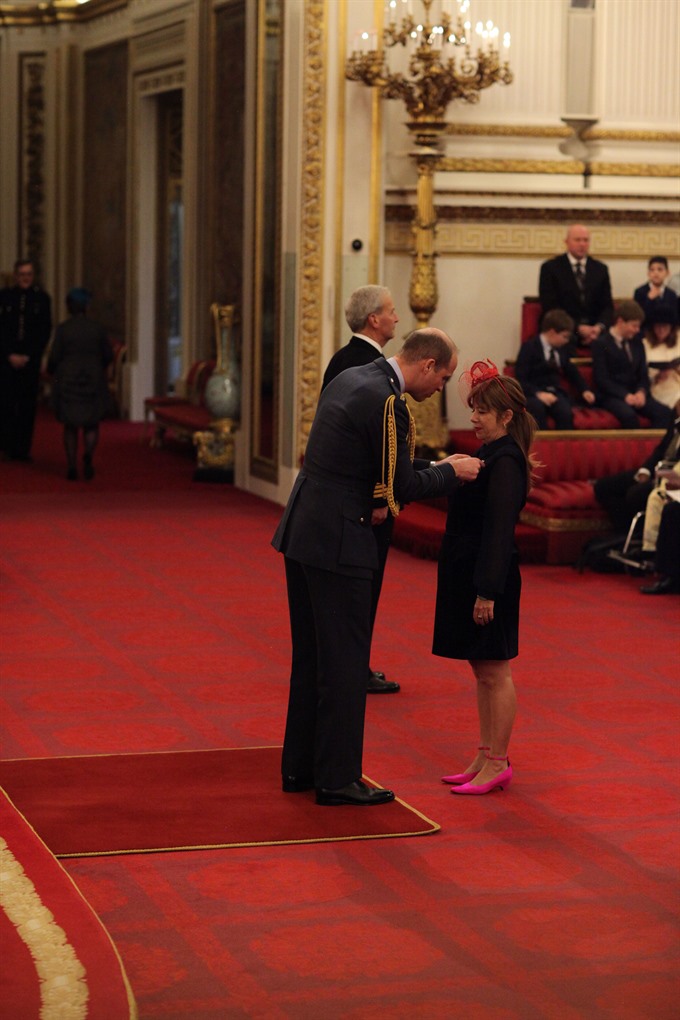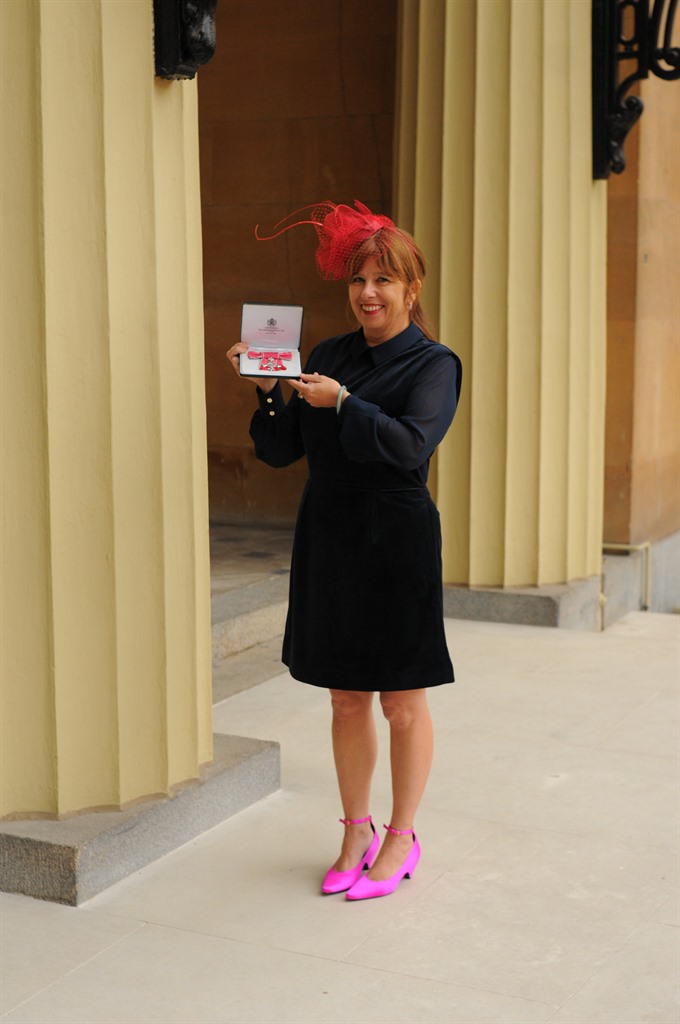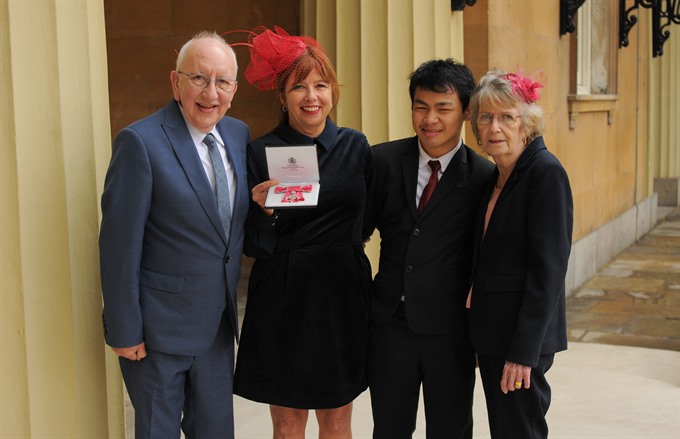 Society
Society

A charity worker who has been helping disabled children in Việt Nam for almost two decades has been recognised by Her Majesty Queen Elizabeth II for her outstanding contribution to society.
 |
| Jacqueline Wrafter receives her MBE medal from HRH Prince William, Duke of Cambridge. — Photo courtesy of the Press Association |
by Paul Kennedy
LONDON — A charity worker who has been helping disabled children in Việt Nam for almost two decades has been recognised by Her Majesty Queen Elizabeth II for her outstanding contribution to society.
Jacqueline Wrafter was presented with a Member of the British Empire (MBE) medal by Prince William, the Duke of Cambridge, during a ceremony at Buckingham Palace earlier this month.
“I did get a little nervous about meeting Prince William just before going up to receive the award from him,” Jacqueline told Việt Nam News.
“You are briefed beforehand on curtseys, steps and how to address him, and I was sure I would forget it all.
“However, he was not at all scary, just very warm and charming. He congratulated me on the award and we chatted for a few minutes about the work of the Foundation.”
Originally from Liverpool in England, Jacqueline and a friend set up the Kianh Foundation in 2001 after visiting an orphanage in Việt Nam and discovering the poor conditions children with disabilities were living in.
Based in Điện Bàn District in the central province of Quảng Nam, Jacqueline helped create a purpose-built education centre to help children in the area live a normal life.
Although it was Jacqueline who was invited to the Palace and given the award, she said the MBE belongs to everyone involved with the Foundation.
 |
| Jacqueline Wrafter poses with her MBE medal outside Buckingham Palace in London. — Photo courtesy of The Kianh Foundation/Press Association |
“As the co-founder, the award is in my name but the achievements of the Kianh Foundation are the hard work of a lot of people,” she said.
“I would describe myself as the anchor for the Foundation, and around me, a huge amount of work goes on by many skilled and committed individuals, both overseas professionals and local staff.
“I am not a teacher, a physio or a speech therapist. The programmes are delivered by other people. And our work does not fund itself.
“As well as myself, my two colleagues, Nick Keegan and Chris Ephgrave, who live in Đà Nẵng, work tirelessly trying to think of ways to convince people how important our work is and to fund it! Definitely not an easy job!”
Jacqueline took her parents and son Nguyễn Tô Hoàng Khoa to London for her big day.
“Khoa was very excited about going to the palace and he did wonder if he was the first Vietnamese person who had been inside,” said Jacqueline.
“Khoa has Cerebral Palsy and I met him when I worked at Hội An Orphanage, where our project began. His disabilities are physical only and he is an extremely clever and capable young man.
“He went to school at our centre and after he graduates at Tết, he will start work there as a teaching assistant and mentor. He is just one example of what people with disability can do when they get some support.”
 |
| Jacqueline Wrafter with her parents and son Khoa outside Buckingham Palace in London. — Photo courtesy of The Kianh Foundation/Press Association |
Like any non-profit organisation, the Kianh Foundation relies heavily on donations and support.
The Điện Bàn People’s Committee has given land so the centre can expand to provide help and support for other children, but construction still costs money.
Jacqueline hopes her Royal recognition will go some way to raising awareness about childcare problems in Việt Nam.
“I don’t yet know what effect this award will have, but I hope it will make people aware of the problems that still exist in Việt Nam, and particularly, Central Việt Nam,” she said.
“Việt Nam stopped being classed as a developing country by the World Bank in 2009 and became a middle-income country.
“Since then, the country has lost a lot of funding, many NGOs have stopped working here and existing NGOs have found fewer grants to apply for and it harder and harder to find financial support.
“However, while Việt Nam’s cities are undoubtedly wealthier and have more resources, rural areas and towns have seen very little change. We work with more than 100 children with special needs and their families in Điện Bàn and Hội An, and they are really the tip of the iceberg.
“We have 200 children needing help on our waiting list, and although Điện Bàn People’s Committee has given us land to expand our centre on to, we have no money to do that. The waiting list grows monthly and these children have nowhere else to go for help.
“Best case scenario would be this award waking people up to the huge amount of children with special needs living outside of Việt Nam’s cities and helping us to do something about it and to help them!” — VNS
*For more information about the Foundation and how to help visit www.kianh.org.uk.




